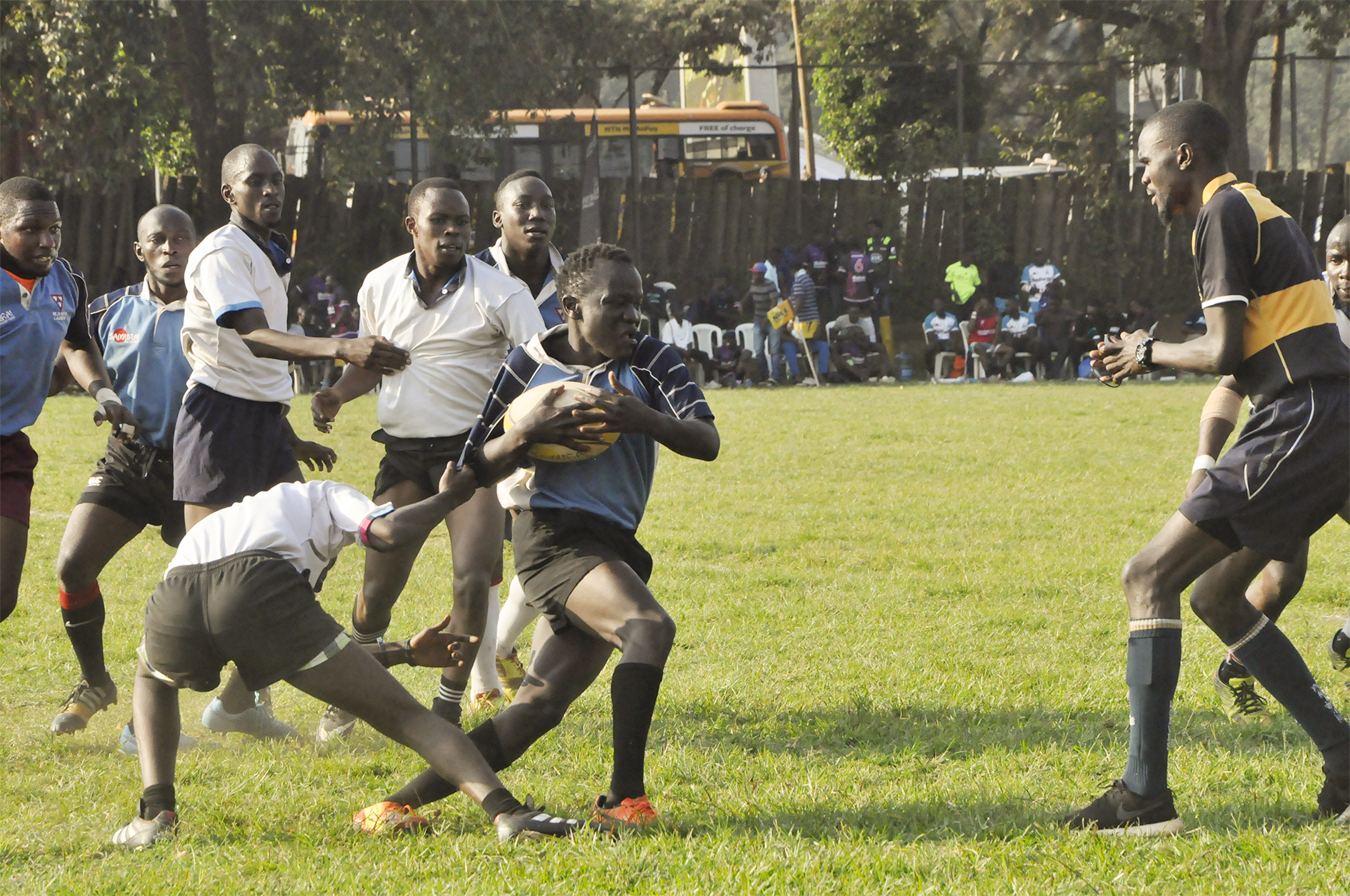
Rugby is one of the fast growing sports in Uganda. Fairly large middle-class crowds, decent sponsorships, and match day fanfare are things that can almost be taken for granted with the Ugandan game now.
Yet while it is a time for merry-making for most fans that flock to games, it isn’t always as rosy, especially off the pitch, for those who provide the reason for all the fun in the first place—the players.
Last weekend, as the rugby fraternity flocked the Kyadondo Rugby Grounds for a floodlight final leg of the National Guinness Rugby Sevens championship, few would have stopped to think that the players on the pitch who sacrifice and endure hard tackles in the name of entertaining those in the stands will probably go back home to a night of no supper.
However, even before they got home, that the players’ welfare is in dire need of rescue was evident on the sidelines of the pitch.
Not enough kits to go around
Fans who follow international sport might find it strange that a team has just one kit yet at Kyadondo on the final day of the sevens circuit, that was one of the untold backstories.
None of the 16 participating teams had a second kit and each team donned one set of jerseys throughout the day. Worse still, one of the teams had jerseys for only the starting seven players, meaning a substitute had to swap shirts with a player being taken off.
If you think that is bad, consider the fact that for the footwear, each player had to find their own, and many, it appears, could only afford old sneakers. Others wore torn boots.
Allowances
You would imagine that rugby being a middle-class sport would save players from the allowances issues most Ugandan sports disciplines are familiar with.
Far from it. One player who requested to not have his disclosed name said, “I play because I am passionate about the game. Allowances come once in a while, but in tournaments like this is where we can get some money because they have cash rewards.”
Another player revealed how even basics like transport to and from training are a challenge. “Our team is yet to afford providing transport allowances. I always trot to training since I cannot raise transport for the entire week. I use money I get from my side jobs and facilitate my transport” he said.
Unlike sports like football, there isn’t a single team in the national rugby league that has a team bus. Players have to find their way to the game venue even on match days.
Contracts for some, not all
Our random interactions showed many of the players were not under formal contract with their teams either. This, Matooke Republic learned, was partly because most are associated with high school and university teams.
One who requested his identity to be concealed in order to speak freely said, “I am not under any contract with my team but it covers part of my school fees.” A number of teams though, such as Betway Kobs, Black Pirates rates, Rhinos, Hima Cement Heathens have their players under contract and this newspaper talked to some of their players who seemed happy about their situation.
Medical insurance unheard of
While an ambulance and medical attendants are always on standby in case of match day accidents, for most of the players this paper interacted with, medical insurance is something they only hear and read about in the news.
The contradiction couldn’t be greater: nearly all of their fans who hold corporate jobs will have medical cover, yet these players who are at risk of serious injury every time they step onto the field for a contact sport cannot get the same provided by their clubs.
Those lucky enough to have formal employment are in a safer position with medical cover, but they are often the minority at a given club.
“I horribly fractured my hand sometime back while playing for my team in the league. It was my family that was wholly responsible during the recovery process though the team once in a while stepped in with a little contribution,” one player narrated.
That should not be entirely surprising when you consider that most teams cannot even feed their stars, only providing water and glucose on match days.